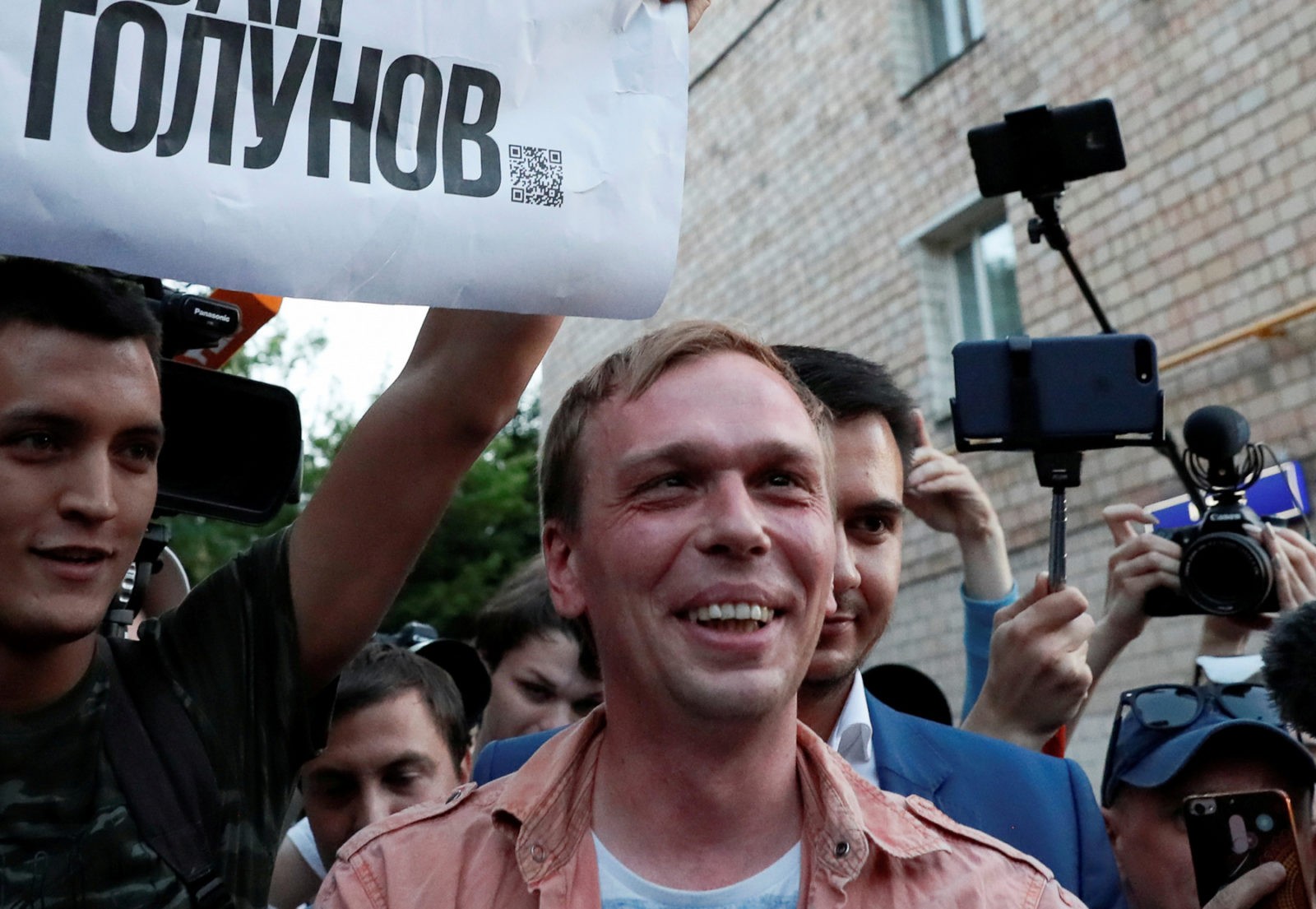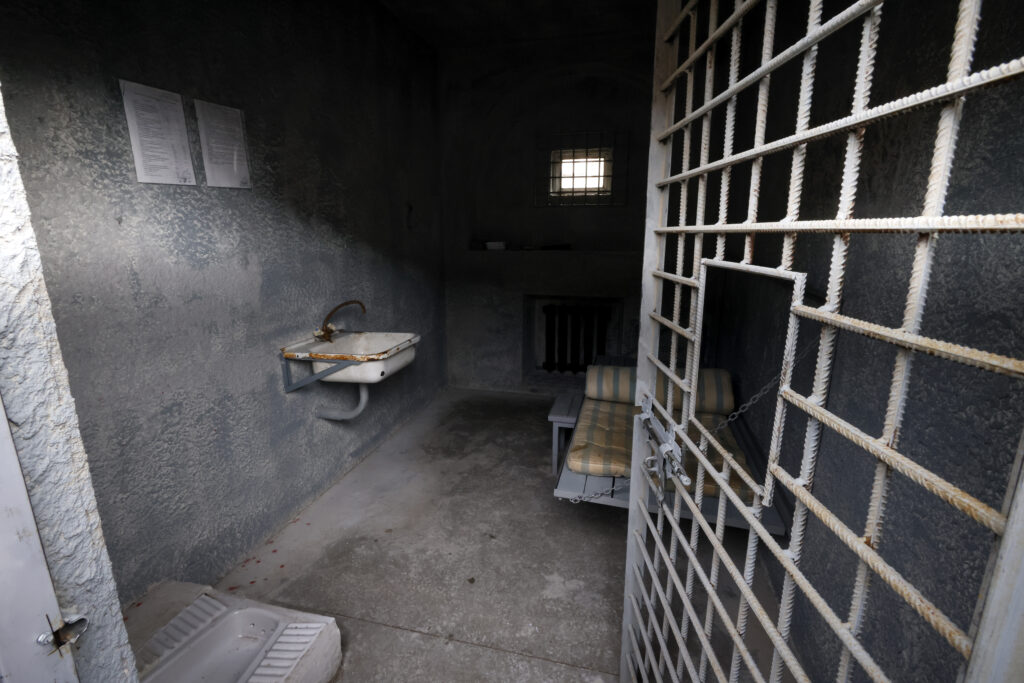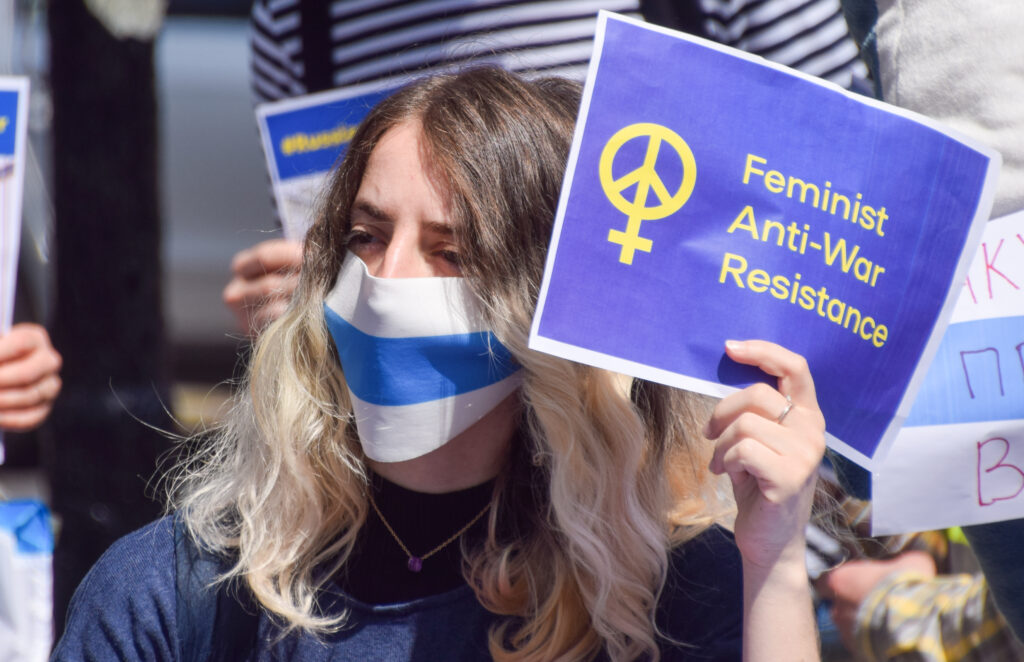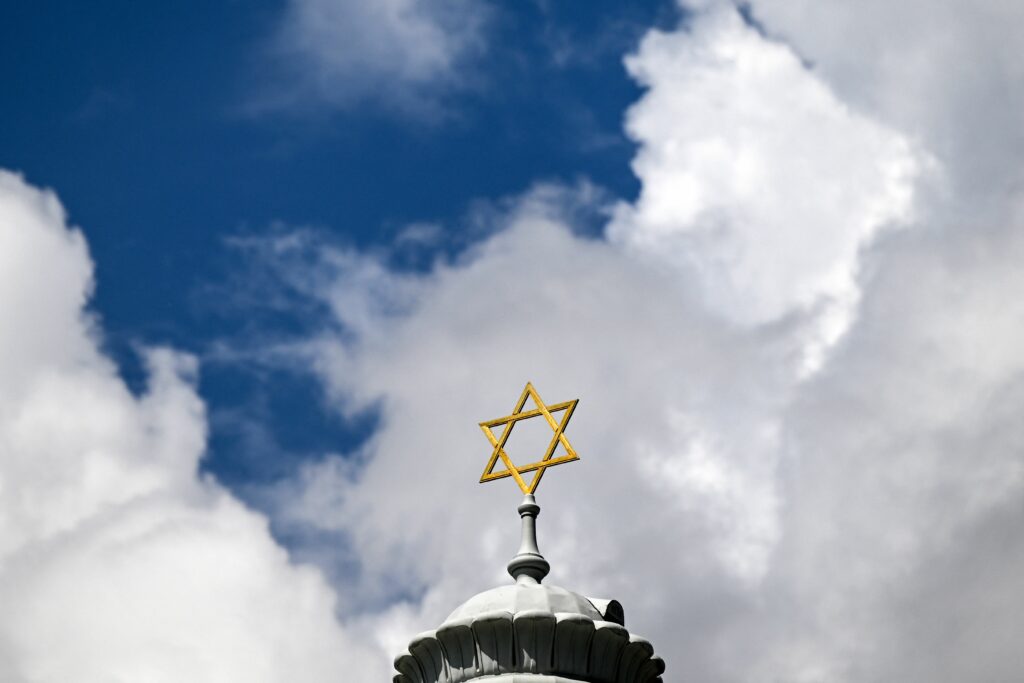Ivan Golunov is a Russian journalist whose investigations have uncovered countless wrongdoings within the Russian elite. On June 6th, he was arrested and detained in Moscow. The official charge was for drug possession. But this was blatantly spurious. And on June 11, after a powerful public campaign, Golunov was released. The criminal case against him collapsed.
It is an example of public pressure having a strong bearing on Russia’s judicial system. Yet unfortunately, such success stories are rare. Hundreds of people remain victims of political repression in Russia. Indeed, politically motivated deprivation of liberty on a false charge is not uncommon. The list of political prisoners recorded by the Memorial Human Rights Center includes at least 297 people. All are innocent in the eyes of the norms and principles of international law. And that list is not even complete.
Some on this list stand accused of violating articles that contradict norms and principles of Russian legislation. For example, art. 212.1 of the Criminal Code of the Russian Federation. That article concerns the repeated violation of the procedure for organizing a public event. Or, art. 284.1. This concerns activities on the territory of the Russian Federation of an undesirable organization. Then there is art. 280.1. This one cracks down on public calls for actions aimed at violating the territorial integrity of the Russian Federation. It also outlaws participating in organizations arbitrarily declared to be “extremist” or “terrorist”.
Many of those included in these lists, like Ivan Golunov, are without grounds accused of committing crimes like drug possession or tax evasion. Some are charged with blatant falsehoods, despite the obviousness of their innocence. These include Dmitry Bogatov, the alleged holder of the TOR hub which hosted anonymous calls for protests. There is also Sergey Akhmetov, who looks like a man who severed the policeman’s shoulder at a rally in support of Navalny. There are four parachutists, who unsuccessfully jumped from a skyscraper on Kotelnicheskaya in the morning of painting the star on its steeple in the colors of the Ukrainian flag. Then there is Igor Rudnikov, a Kaliningrad journalist charged with the extortion of Investigative Committee of Russia general; Rudnikov has just been released.
Dmitry Buchenkov (who looks like a certain participant of Bolotnaya Square events on May 6, 2012, qualified as mass riots), who had an alibi, managed to evade conviction, only by escaping from court abroad after almost two years in a pre-trial detention center and under house arrest. Ukrainian citizens Nikolay Karpyuk and Stanislav Klykh were even less fortunate. They were kidnapped from the territory of Ukraine and, after torture, convicted for participating in the Chechen war, sentenced to 22 and 20 years, respectively. They were not helped by an alibi, or even by the complete absurdity of the accusation. Neither did the 100% alibi help the disabled Rasul Kudaev. He was convicted for life for allegedly participating in the 2005 attack on Nalchik.
It would take entire articles to describe other, less known political prisoners. A participant of the Kyiv Maidan Andrei Kolomiyets, for another example, who was convicted on a clearly fabricated charge of drug possession. Or the depressing story of Mikhail Savostin, an activist from Mineralnye Vody. Much more research still needs to be done.
A Midsummer Miracle
This litany of cases shows how the case of Golunov was a miracle. Yet there are objective and subjective explanations. Of course, a massive campaign of solidarity played a key role. But many cases of clearly unfair deprivation of liberty do not cause such campaigns. Besides, those massive manifestations of solidarity that do still happen, do not induce the authorities to retreat so quickly or completely. After all, the demand for the release of political prisoners was one of the key demands of a much more massive protest of 2011-2012 years. But only Segrei Mohnatkin, who had almost served his sentence, was pardoned as he almost headed out the prison door.
One crucial aspect? The instigator for the case against Golunov was not the highest authority itself. He was still high-ranking, but third-party characters in the hierarchy of power were key. Equally the protest had a local goal. They were not against the authorities in general. On the other hand, the declining ratings of the authorities and growing protest sentiments contributed to it. It forced the country’s leadership to avoid crude tactics against such local protests.
There are also reasons for how solidarity with Golunov acquired such a serious scale.
It is key that Golunov was personally familiar to many outraged journalists, primarily Moscow ones. This community is more liberal-minded and independent than other professional corporations. By its nature, the media has the tools to convey its consolidated position to society.
At the same time, society itself was ready to accept and reinforce the indignation of journalists. First, by not believing in the ability to achieve goals at the political, federal level. People today tend to fight for local goals that seem to be more achievable. There is an increase in awareness of personal responsibility for local issues. Last year’s qualitative public opinion surveys from the Belanovsky-Dmitriev group confirm this. Typical examples of movements at the local level? The struggle against the construction of the church in Yekaterinburg or the landfill in Shiyes.
Second, the nature of the crime Golunov was accused of perhaps contributed to the scale of manifestations of solidarity. In short, Article 228 of the Criminal Code. This concerns the storage of drugs without purpose of sale. It is described as “popular” since it is the most widely used of all articles of the Criminal Code. In 2018, more than 74 thousand people were convicted of it; more than 11% of all convicts that year in Russia. At the same time, about a third of the sentences imposed under this article provide for real terms of imprisonment.
It is worth noting that drug-related accusations are the most common way to fabricate criminal cases. Specialists of the Institute of Law Enforcement at the European University at St. Petersburg found an anomalous statistical distribution of seized drugs. It peaks at values that fall under the criminal article. This led the experts to conclude that over 10 years, as many as 40,000 criminal cases were falsified under art. 228. In most cases, such fraud occurs to ensure the necessary reporting on the disclosure of relevant crimes. But judging by many media reports, and collective public experience, the simplicity of falsification makes the threat of persecution under Article 228 also a common extortion tool for the police.
Art. 228 of the Criminal Code more than once provided a convenient tool for political repression. Besides the already mentioned Kolomiyts and Savostin, the lists of political prisoners of Memorial include human rights activist Oyub Titiyev and journalist Zhalaudi Geriyev, a public figure. Both were convicted under this article. Ruslan Kutayev, as well as the opposition activist Taisia Osipova, have already been released after serving their sentences relating to Art. 228.
Experience shows that bursts of active solidarity with the victims of repression arise in cases where the injustice of the persecution is evident without a detailed study of the materials of criminal cases. That is not all. There also needs to be resonance with the personality of the victim. And the nature of the persecution must be absurd and memorable enough to allow many to empathise. Such is the nature of the rare successes of solidarity campaigns. That happened with Svetlana Davydova or Ildar Dadin. That is exactly what happened in the case of Ivan Golunov.
The confluence of all these circumstances led to the fact that the authorities considered it rational to release Golunov and drop charges. Thus, the Kremlin was able to remove the reason for the mass protests. It was fast enough to forestall protesters from putting forward more system requirements surrounding the causes and conditions that made it possible to falsify a case so flagrantly against a journalist.
Mass police violence against participants of the protest action in Moscow on June 12, during which more than 500 people were detained, was intended to supplement the “carrot” with a “stick.”It was to reinstate the impression that the authorities were prepared to resist pressure. However, the precedent of such striking success in the struggle for the liberation of at least one victim of political repression is vital for public consciousness, and a cause for hope.










